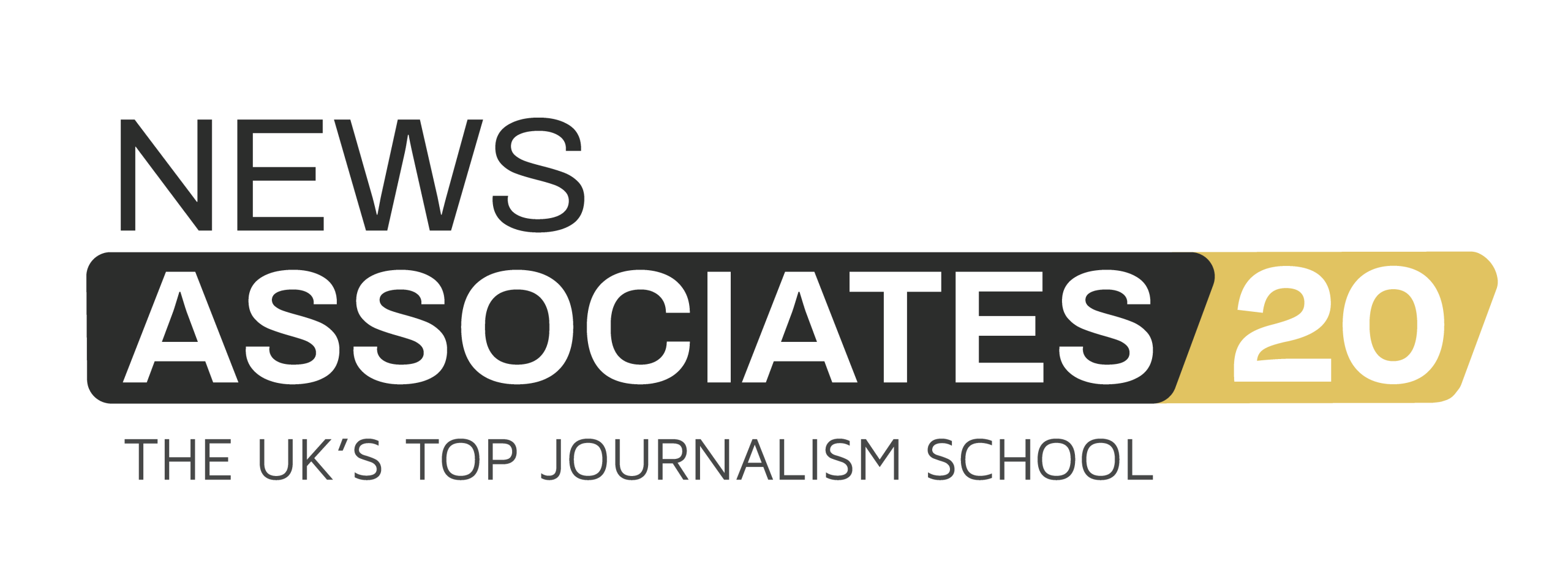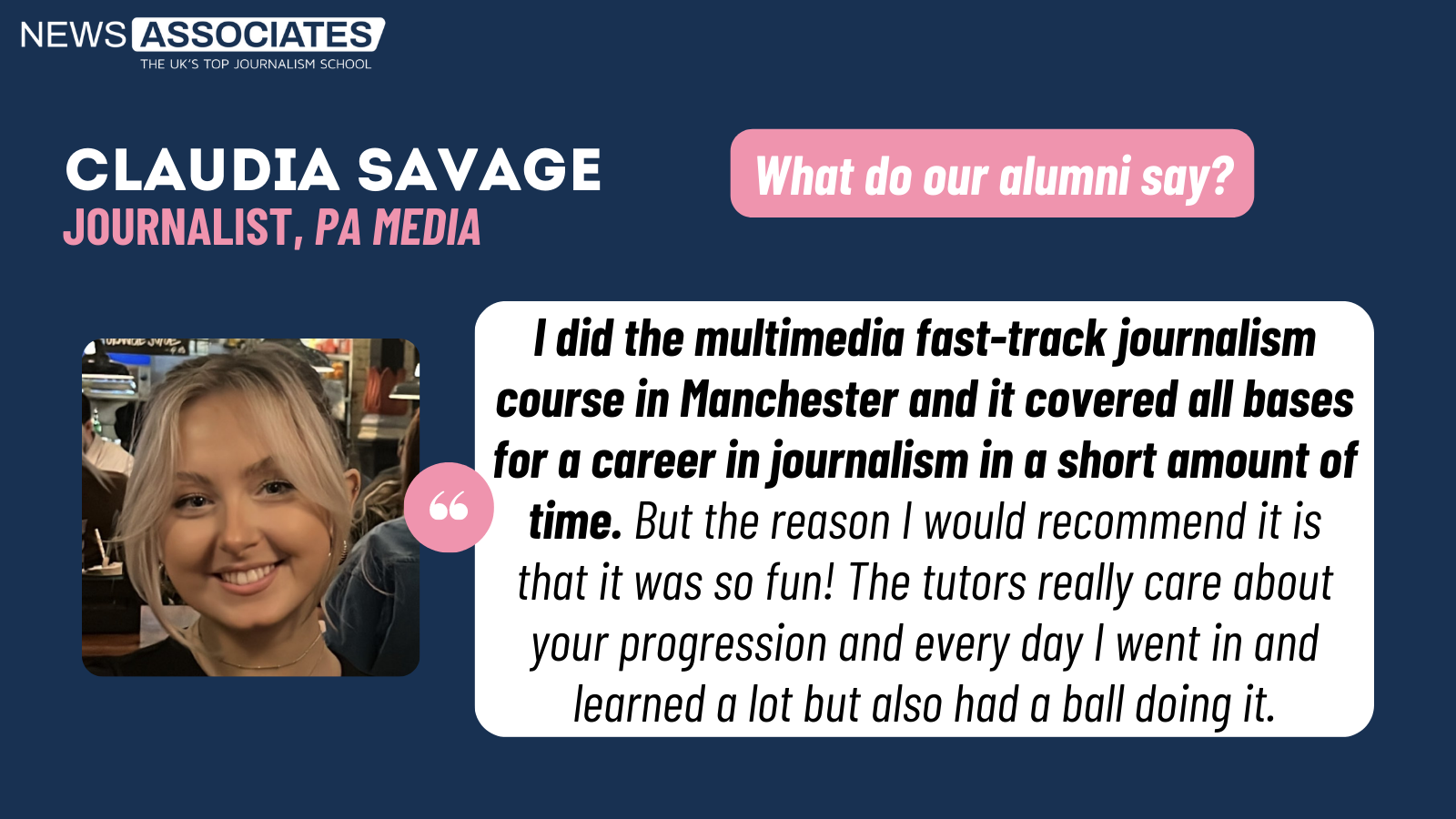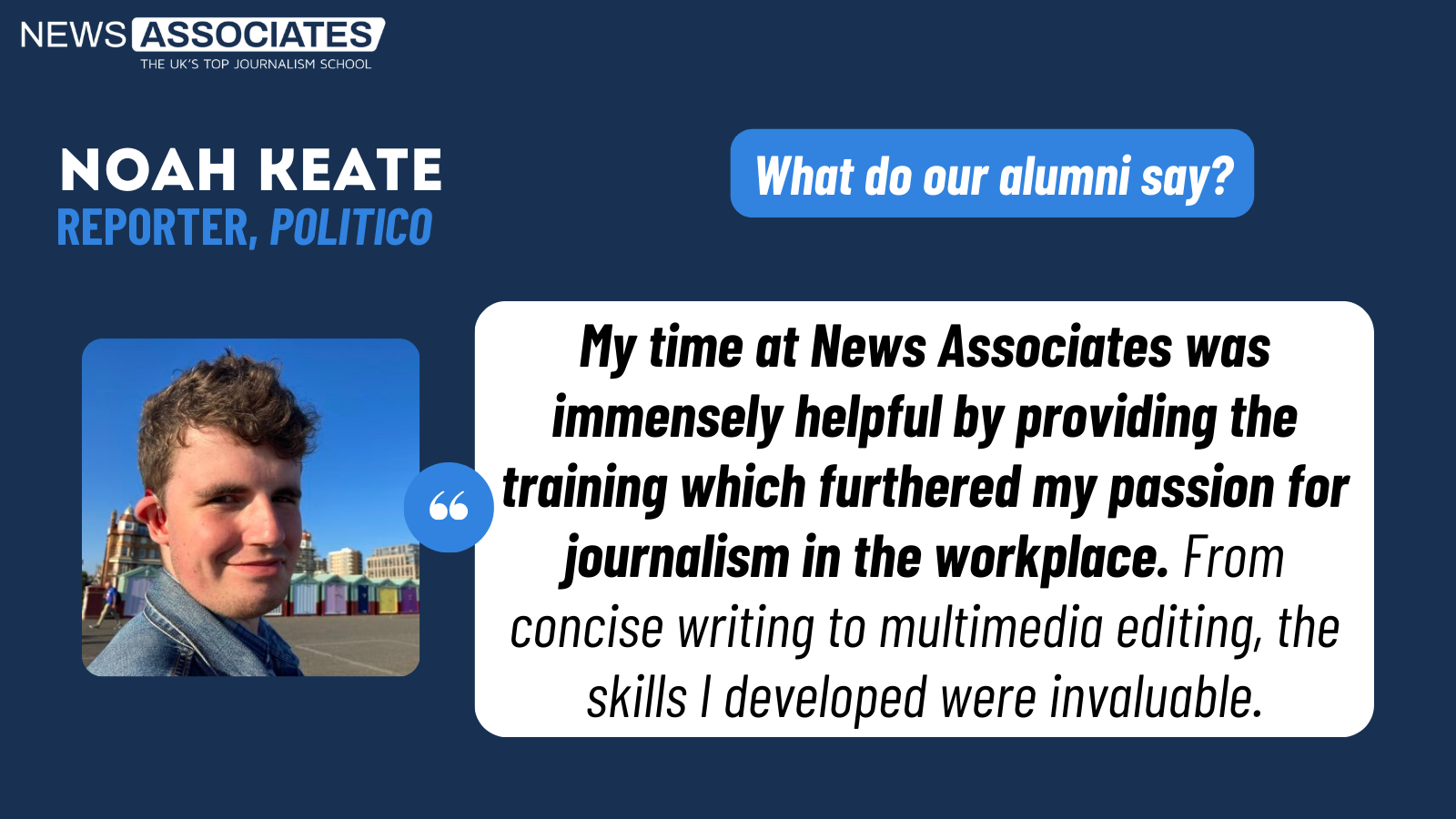Want to study with us at News Associates? Here are some of the questions we get asked regularly about our 22-week full-time fast-track journalism courses.
What is the NCTJ?
The National Council for the Training of Journalists administers the industry’s qualification for aspiring reporters in the UK. Most journalism jobs require the NCTJ qualification. It is a charity which provides a world-class education and training system for aspiring journalists, meeting the demands of a fast-changing multimedia industry.
NCTJ accreditation is widely viewed in the industry as the benchmark of excellence for journalists.
Read about what the NCTJ is and why it is important here.
What modules do I study on the fast-track course?
On the 22-week fast-track course, trainees will study ten compulsory modules, taught by tutors with experience in different corners of the journalism industry.
Mandatory modules include: broadcast regulation, data journalism, essential journalism, essential journalism and ethics and regulation, essential journalism e-portfolio, essential media law and regulation, journalism, for a digital audience, public affairs for journalists, radio journalism, videojournalism for digital platforms.
There are also two optional modules: shorthand and media law court reporting.
The optional modules are additional to the mandatory modules. You can still achieve your gold-standard NCTJ Diploma by sitting just the mandatory modules. The optional modules are offered at no extra cost or time.
Are the modules the same across the courses?
We deliver a variety of NCTJ modules across all of our courses. Our courses are all slightly different so we hope there’s a course out there for you.
You can still achieve the highly sought-after gold-standard NCTJ Diploma on all of our courses
Read about the modules here: https://newsassociates.co.uk/nctj-course-elements/
If I sit and pass shorthand, are the other modules still compulsory?
Yes, shorthand and court reporting are the only optional modules and they are in addition to the other modules.
I am working full-time, can I study for the NCTJ Multimedia Diploma around my employment?
The full-time fast-track course is an intensive 22-week period. We recommend you fully commit to the course and do not undertake any part-time work.
If you need to hold down employment alongside studying for your NCTJ then we suggest looking at one of our part-time courses.
The application process is the same as the fast-track course, and you will leave with the same qualification!
See more about our in-person 40-week part-time course here. And our 18-month fully-remote part-time course here.
Will you help me find a job?
We’re passionate about the fact our job isn’t over until we’ve found you one. We have an unrivalled network of alumni contacts who frequently send us jobs to circulate to trainees.
The course involves sessions on employability, such as CV clinics and mock interview practice, as well as guest speakers and networking events.
What’s the difference between studying with News Associates and taking a Masters in journalism at university?
In our opinion, an NCTJ with us and a Masters are very different qualifications. There are no academic elements to our courses – it’s practical training and learning by doing. We have a favourite saying here that you can’t learn journalism from a textbook, and we stand by it.
If you choose to study with us then we’ll treat you like a trainee journalist from day one, not a student – which isn’t for everyone. Our course is shorter (and cheaper!), but ultimately focussed on getting you your first journalism job, or moving to a different area of the industry.
Read more about this here: https://newsassociates.co.uk/what-is-the-nctj/
@newsassociates_ A few of our fast-track trainees share the best piece of advice they’ve received on the course so far! 🌟👏 #TeamNA #StartedHere #NewsAssociates #JournalismCourse ♬ original sound – natalie’s vintage vinyl corner
What are your entry requirements? Do I need a degree?
The majority of our trainees have an undergraduate degree, from a variety of different subjects, however we are looking for a clear passion and commitment to the industry, such as through student media or relevant work experience.
We sometimes accept applications from mature applicants without formal qualifications. It is highly desirable that you have some relevant work experience in journalism, especially when applying for our fast-track course. This may be paid work, an internship, student journalism at your university/college, freelance work, or a combination of these.
If English is not your first language, you must get a minimum overall score of 7.0 in the IELTS English language test, including at least 7.0 in the writing component of the test. You will be required to take this test at your own expense.
Will I be able to build a portfolio whilst completing my NCTJ training?
Producing a body of work you are proud to show to a potential future employer is a key part of the course. As part of your course, you will produce a 10-piece e-portfolio. This is a compulsory module on all our NCTJ-accredited courses.
However, you will be able to build on top of this portfolio during your weekly placement. You can choose to do weekly placement with an external publication or broadcaster, or you can carry out placement with our in-house local news websites in London – you will write for these publications loads as part of your course anyway, you can pitch to us whenever you like and join our Wednesday placement days.
There will also be plenty of opportunities to cover breaking news and get stuck in with reporting. Just recently our trainees have covered the death and funeral of Queen Elizabeth II, King Charles III’s coronation and the general election.

How does the application process work?
Our application process has three phases. The first stage is this short form online.
After your initial online application is assessed by our training team you will be emailed a longer admissions form which you will need to fill out and email back.
If successful, the final stage is an interview and exam at our office or remotely.
Subject to passing the exam and impressing in the interview you will be offered a place to study with us.
We regret that due to the high number of applications we are not able to give individual feedback on the process.
Can I apply if I’m based internationally?
International trainees can apply for all our training schemes but please note we are not on the Sponsor Register of Employers and are not currently in a position to sponsor Tier 2 or Tier 4 visas for international graduates. Therefore our courses are not eligible for student visas and we cannot assist with any visa applications.
Alternatively, you could apply for our 18-month remote-only course. This allows our trainees to study from anywhere!
I don’t live in London, can you help me find accommodation?
Our trainees come from near and far, and have no problems finding somewhere to live. We can put you in touch with fellow course members who might want to house share with you, and there are plenty of student houses and spare rooms advertised on websites.
Our grads and trainees are making a splash in the industry ✨#TeamNA #StartedHere pic.twitter.com/ht3F9MgDoQ
— News Associates (@NewsAssociates) March 13, 2025
How much does the course cost?
Click here to read about fees and funding: https://newsassociates.co.uk/fees-funding/
Can I talk to someone or come and have a look round before I make my decision?
Many of our trainees came to one of our free workshops first to meet the team, but we’re also more than happy to book a time for you to come and ask us your questions. Please email us at training@newsassociates.co.uk or call us on 0203 026 3781.
Got a question about our journalism courses? Contact us on training@newsassociates.co.uk or 0203 026 3781.
Sign up for a free journalism workshop here.
Apply for our NCTJ-accredited journalism courses here.




